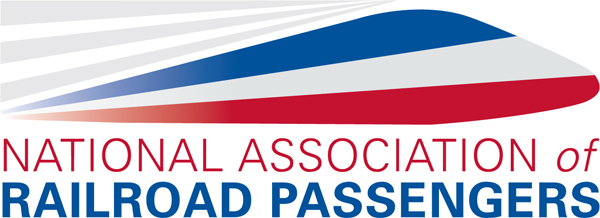Hotline #674
June 21, 1991
The Senate approved S.1204, the Moynihan surface transportation bill, on a 91-7 vote on June 19. Many amendments, including provision of a watered-down national highway system and re-figuring of state allocations, were added to the bill last week, but the essence of what we were concerned about remained in the bill. That includes wide flexibility for a state to spend federal highway money on other transportation programs, including intercity passenger rail; a level playing field through uniform federal matching grant ratios across all the modes; and good anti-big-truck measures.
Half a state's trust fund money would be "flexible," with only 17.5% of that flexible half mandated to the National Highway System, and 20% of that could be flexible as well. In other words, a state could spend as little as 7% of its federal highway trust funds on the National Highway System and as much as 43% on non-highway transportation.
Senators voting against were Graham, Mack, Heflin, Roth, Bond, Kasten, and Kohl; Pryor and DeConcini didn't vote. The seven opposed S.1204 mostly because they felt the Highway Trust Fund donor states weren't getting a good enough deal. However, Senator Conrad (N.Dak.) put it eloquently when he pointed out that not every state can come out ahead on every program. He said North Dakota doesn't get as much federal defense spending as Virginia, or as much savings-and-loan bailouts as Texas. All the fighting over the donor-state issue began to take on the appearance of a fight over pork and the virtues of the Moynihan bill were largely forgotten in the ensuing fracas.
The House will not introduce a surface transportation bill this month. However, the Public Works Transportation Subcommittee mark-up is expected the week of July 9, with Committee mark-up the following week. We are not hearing uniformly good things about the House bill, despite the fact that Public Works leaders such as Representatives Roe and Mineta traditionally have been in support of balanced transportation. One account says that the House bill has states spending 50% of their total federal allocation on the Administration's National Highway System. If so, it could mean that the House bill would not be nearly as good as the Senate bill on flexibility and providing a level playing field. It is extremely important to tell your Representative to oppose a House bill that is mostly pro-highway, especially if you have representation on the Public Works Committee.
The press has been portraying S.1204 as the greatest lobbying defeat to the American Trucking Associations in recent memory. However, the trucking industry is not giving up and will try to reverse the Senate losses in the House. Please tell your Representatives that they should support truck-size freeze amendments such as H.R.2515 that would prevent monster trucks from spreading across the country.
Representatives Andrews (D.-Me.), Snowe (R.-Me.), and Swett (N.H.) have written to Public Works leadership asking their support of the Boston Central Artery rail link.
NARP President Jack Martin and NARP Director Terry Hall will speak at a seminar on passenger rail service on June 29 at the hotel in Nashville Union Station. The program runs from 9:00 am to 3:00 pm and will include a discussion of Chicago-Florida service and an update on the Memphis station situation, as well as Martin’s comments on Amtrak generally. There will be a 6:30 pm reception aboard the private car Hollywood Beach, $8.00 per person, please RSVP.
A newspaper in Melbourne, Fla., says that Amtrak and the Florida East Coast Railway are talking about having one of the Miami trains use that route. That route would provide new service to places such as Fort Pierce, Cape Canaveral, Daytona Beach, and St. Augustine. The FEC operated through-trains from the North until a bitter 1963 strike; local passenger service ended in 1968. Amtrak service on the FEC would depend on the state funding a new track connection at West Palm Beach. Amtrak's use of the FEC presumably would mean more train-miles in Florida with both the Silver Star and Silver Meteor splitting in Jacksonville. Under one scenario, the Star's Miami section would resume running via Wildwood and the Meteor's Miami section would use the FEC, with both trains' Tampa sections, of course, running via Orlando.
The Amtrak Thruway bus from Ogden to Salt Lake City has been extended to the Provo Amtrak stop, connecting with the Pioneer to and from Seattle only. Other Thruway stops at Orem and Brigham Young University are being negotiated with the operator. The Thruway bus connecting to and from Wyoming still terminates in Salt Lake City.
The westbound American-European Express derailed this morning at Monon, Ind. Details are still sketchy, but it appears no one was hurt and that seven of the 12 luxury cars derailed. Amtrak's Hoosier State was annulled yesterday between Lafayette and Chicago.
The New Jersey legislature last month approved some money for buying abandoned rail corridors, but didn't guarantee they will be banked for future rail use. High up on the list for purchase is a Conrail line through the Hoboken and Jersey City area and the Lackawanna Cutoff,, which, with the Kearny Connection feeding trains into Penn Station, could one day be part of an intercity route connecting New York, Scranton, and New York.
We may see more drug sweeps on Amtrak trains, after a Supreme Court decision on June 20, that says police officers looking for drugs may board buses and ask passengers for permission to search their bags without violating their constitutional rights.
MARC is offering a $5 discount on weekly and monthly tickets to make up for bad service in May, the worst month for on-time performance in recent history.
The Virginia Railway Express will hold a ceremony marking the delivery of its first locomotive at Washington Union Station on June 26 at 10:00 am.
